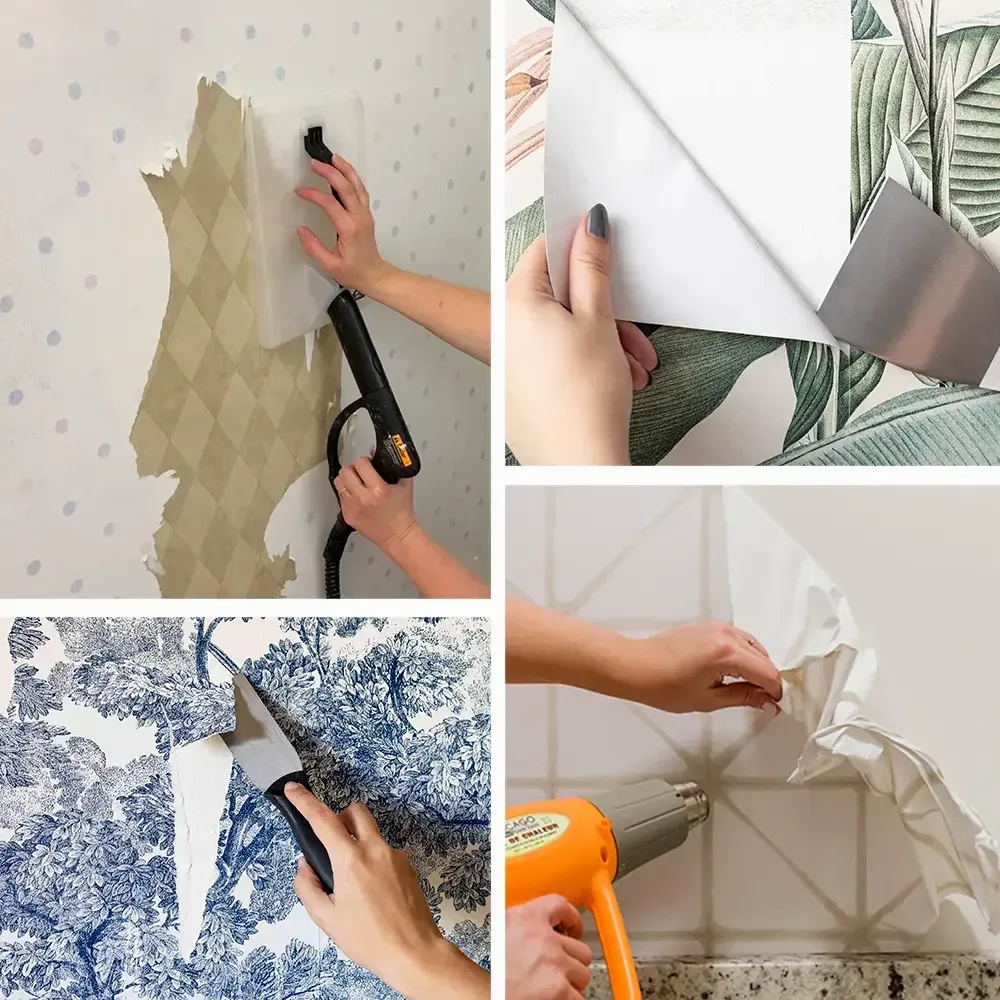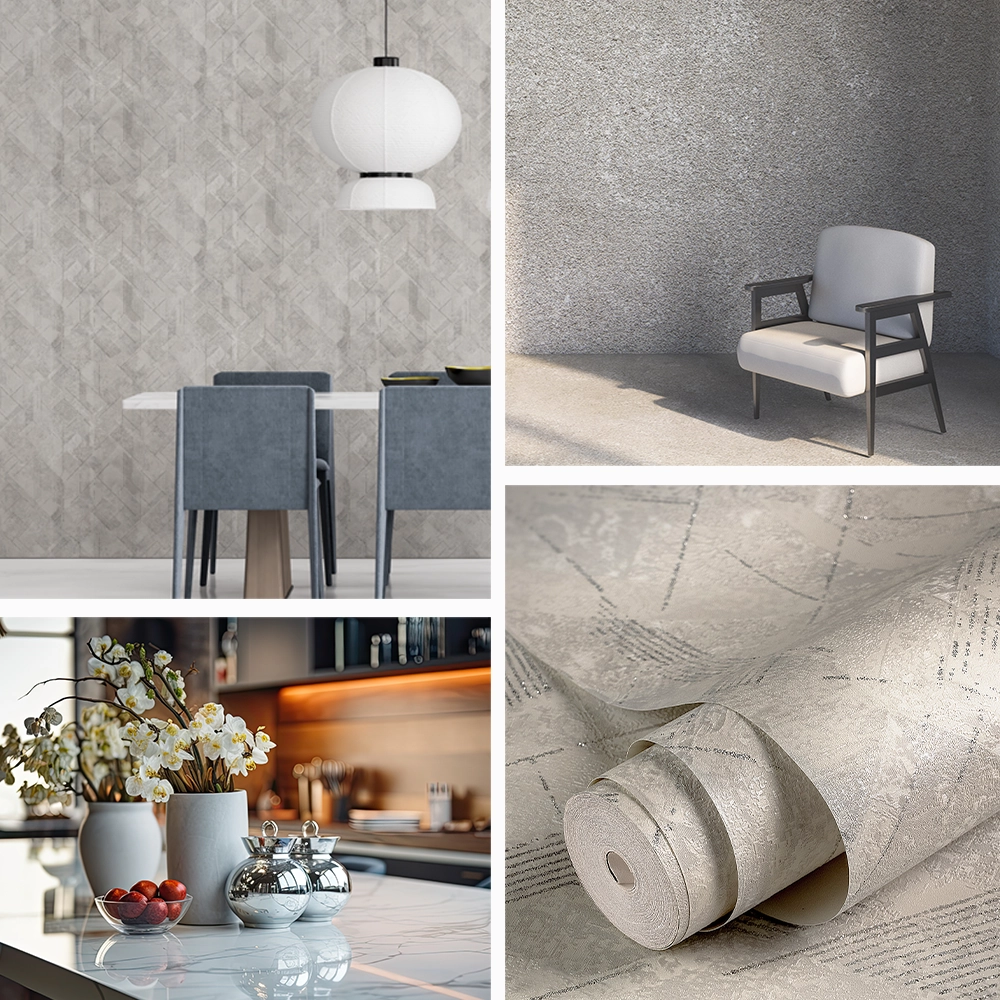If you’re planning to buy and install new wallpaper for your home but don’t know how to remove the old wallpaper from the walls, stay with us. In this guide, we’ll walk you through the step-by-step process of removing wallpaper from the wall to help you get the job done easily.
What tools and materials do you need to remove wallpaper?
- Water
- Spray bottle
- Vinegar
- Sponge
- Scraper or utility knife
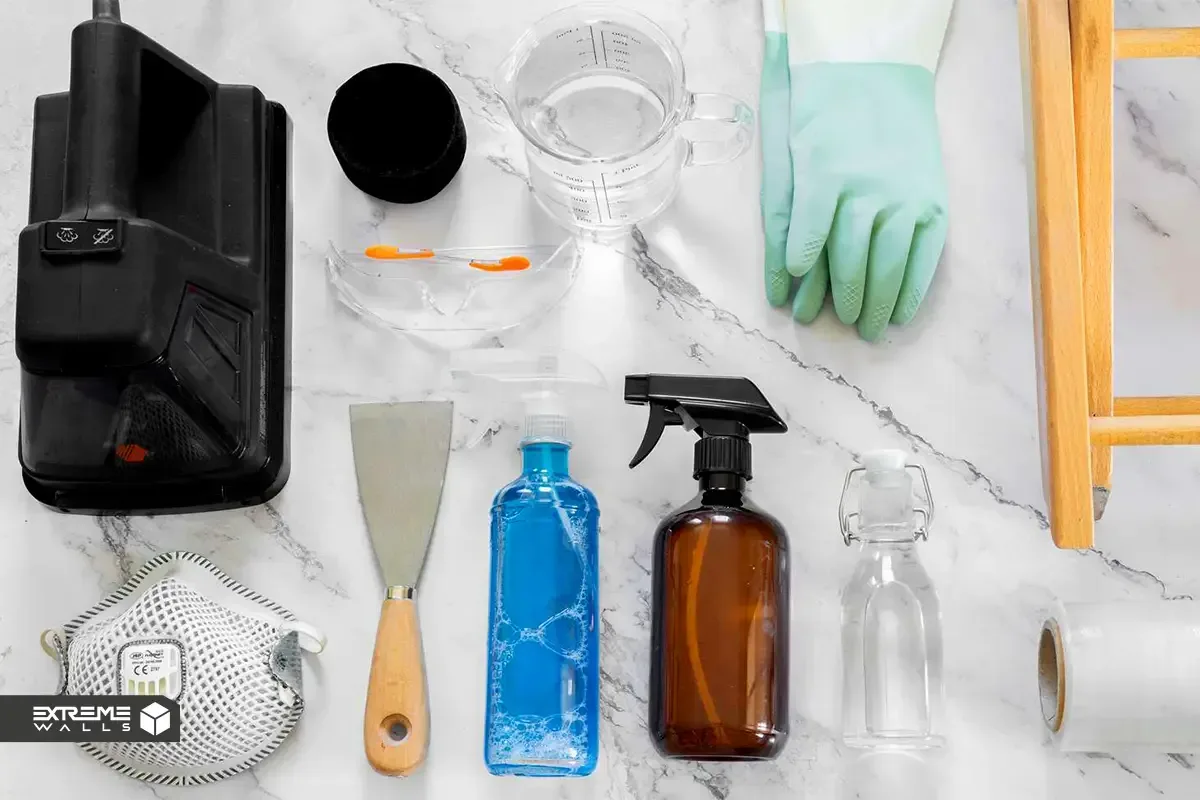
What Should You Do Before Starting to Remove Wallpaper?
Before you begin, it’s best to prepare the workspace to prevent any mess or damage to the surrounding area.
Protect the floor and baseboards:
Cover the floor with plastic sheets or disposable tablecloths, and tape over the baseboards using painter’s tape to protect them from getting wet or damaged.
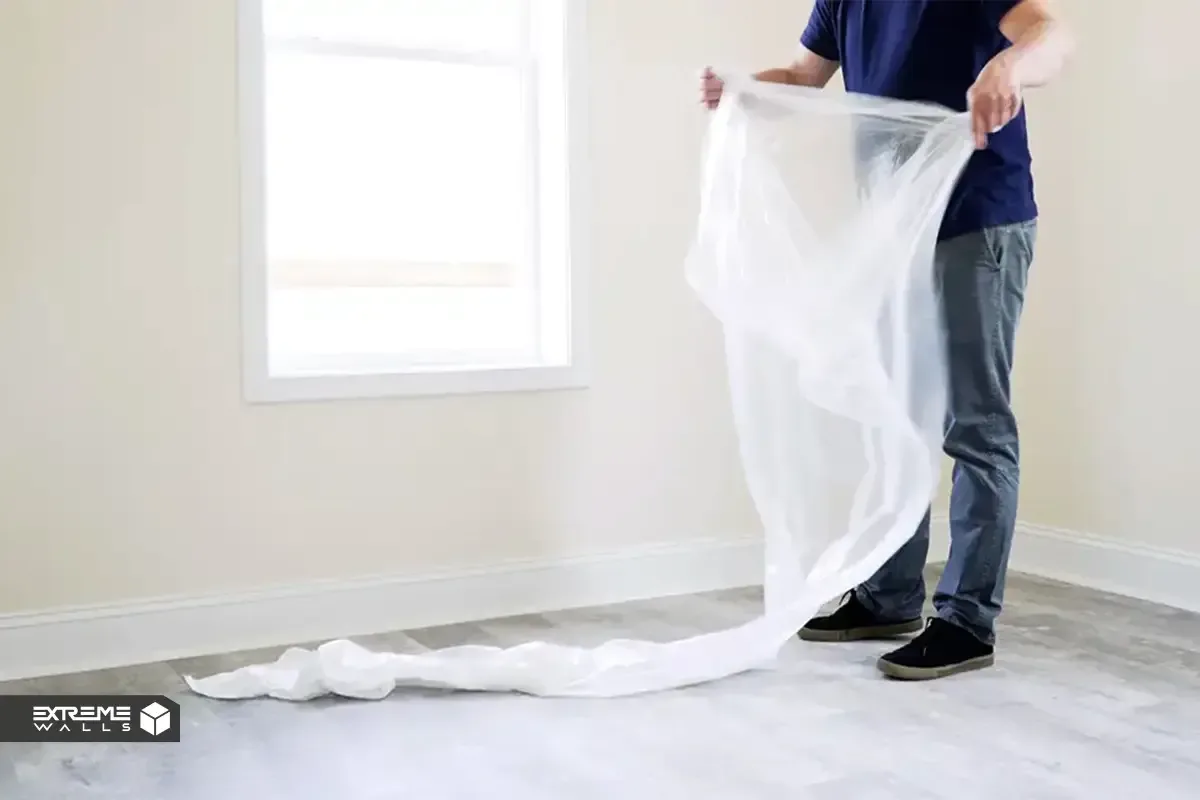
Gather the necessary tools:
Prepare a spray bottle filled with water, a scraper, a sponge, a bucket of warm water, a cleaning solution, and a pair of gloves to help you remove the wallpaper from the wall.
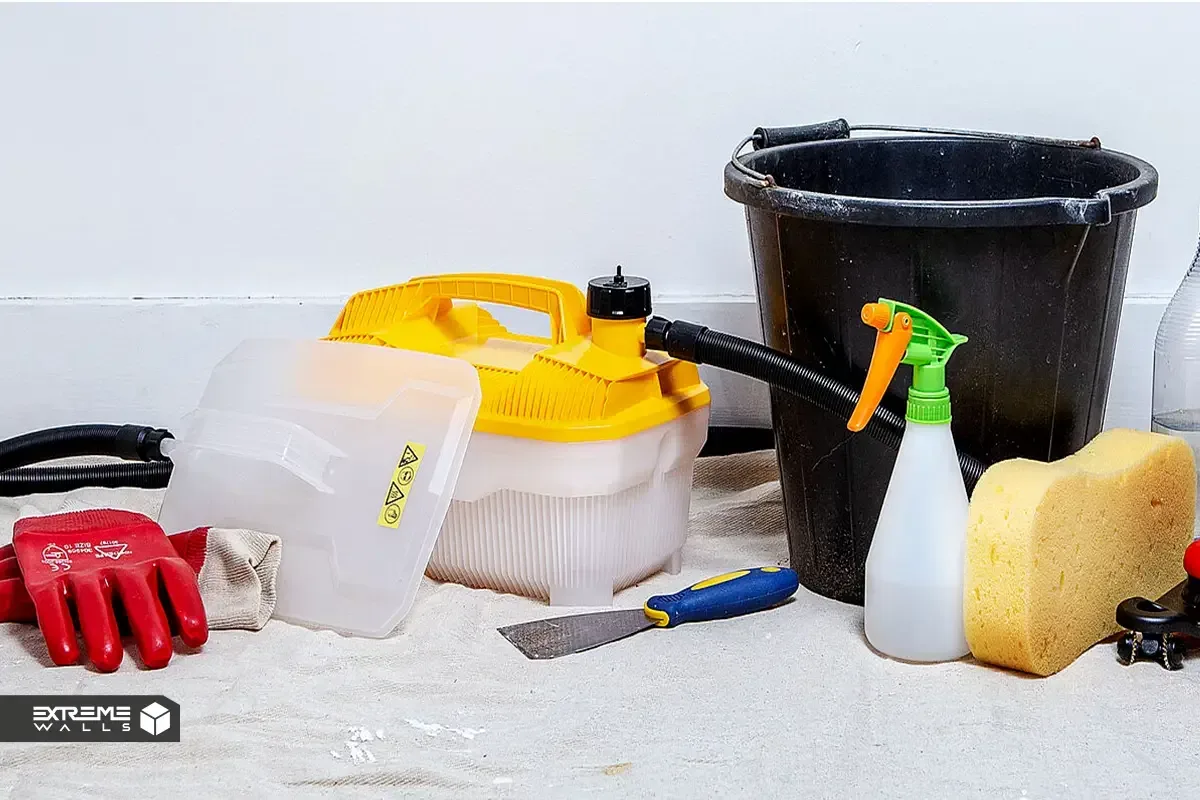
Turn off the electricity:
Make sure to turn off the power, especially if you’re working near electrical outlets or switches.
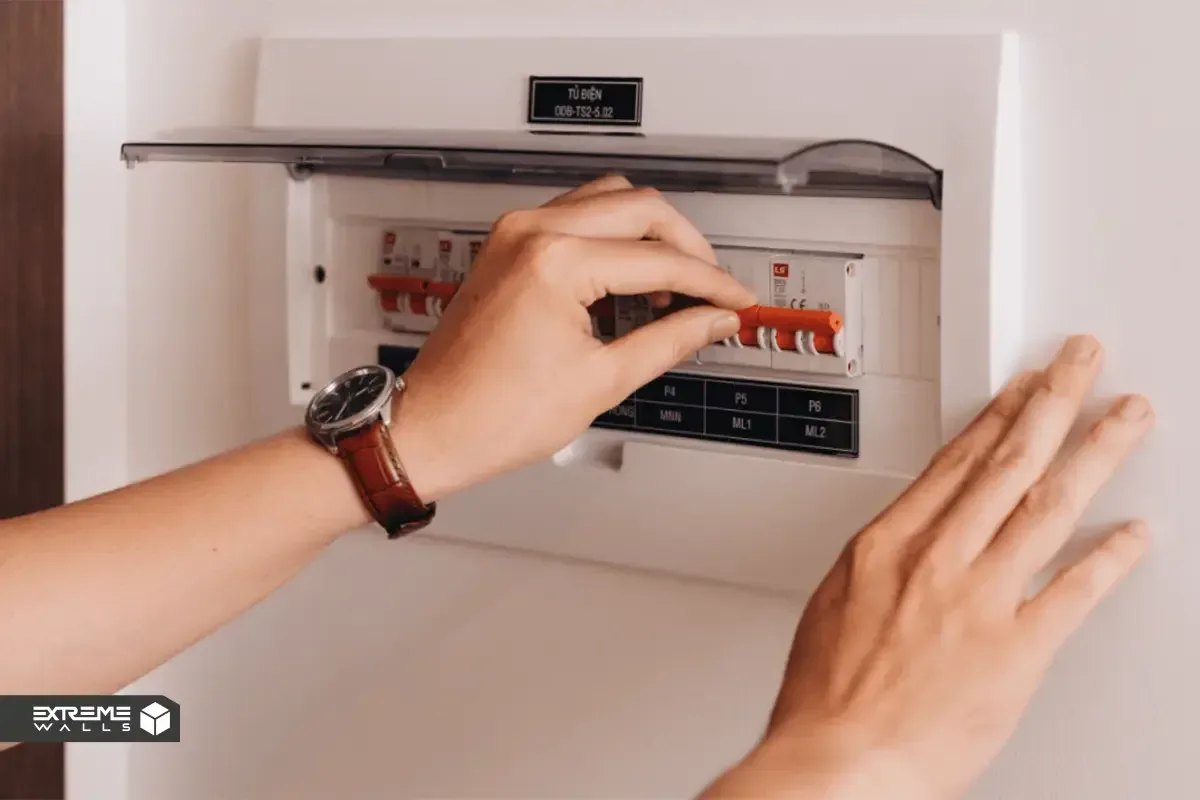
Wear gloves:
Use gloves to protect your skin from chemicals or prolonged contact with water and vinegar.
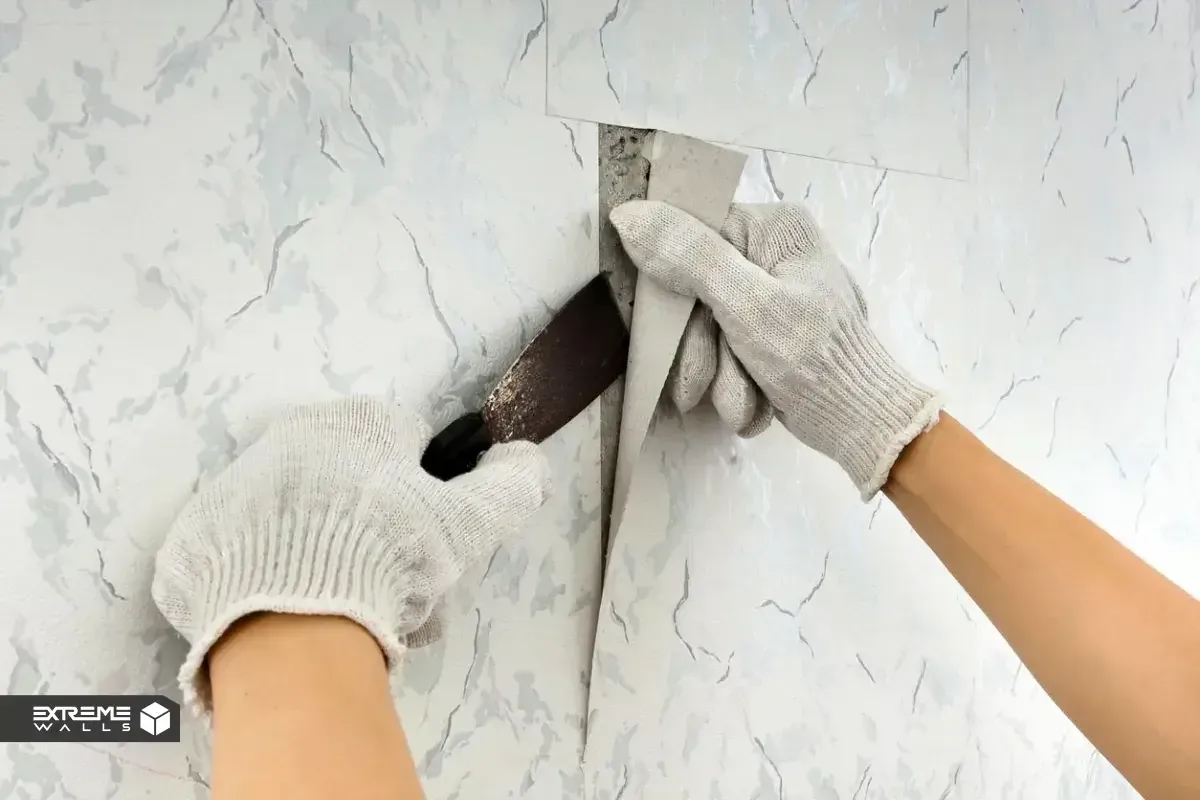
Avoid overly sharp tools:
Use a utility knife or scraper blade only when necessary, and do so carefully to avoid damaging the wall.
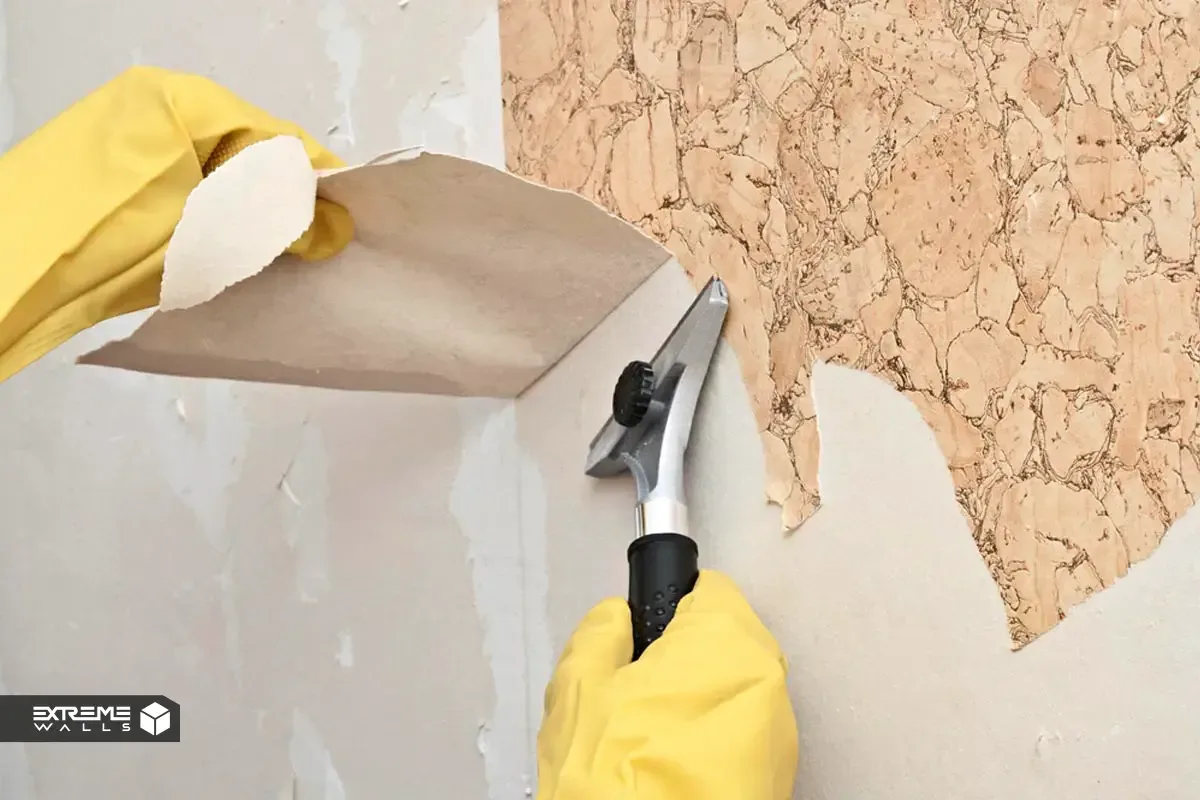
Steps to Remove Wallpaper
1. Test the wallpaper’s strength:
Start by wetting a small corner of the wallpaper to determine its material and how strongly it’s glued to the wall.
2. Soak the wallpaper:
Use a spray bottle filled with water to thoroughly wet the entire surface of the wallpaper. For tougher wallpapers, you can use a mixture of water and vinegar.
3. Wait a few minutes:
Let the solution sit for about 10 to 15 minutes to allow the adhesive to soften.
4. Remove the wallpaper:
Using a scraper, lift the edge of the wallpaper and gently peel it away from the wall. If it doesn’t come off easily, spray more solution and try again.
5. Repeat the process:
Repeat these steps for all sections until the wallpaper is completely removed.
6. Clean the wall:
After removing the wallpaper, clean the wall with water and a mild cleaning solution to prepare it for new wallpaper installation or repainting.
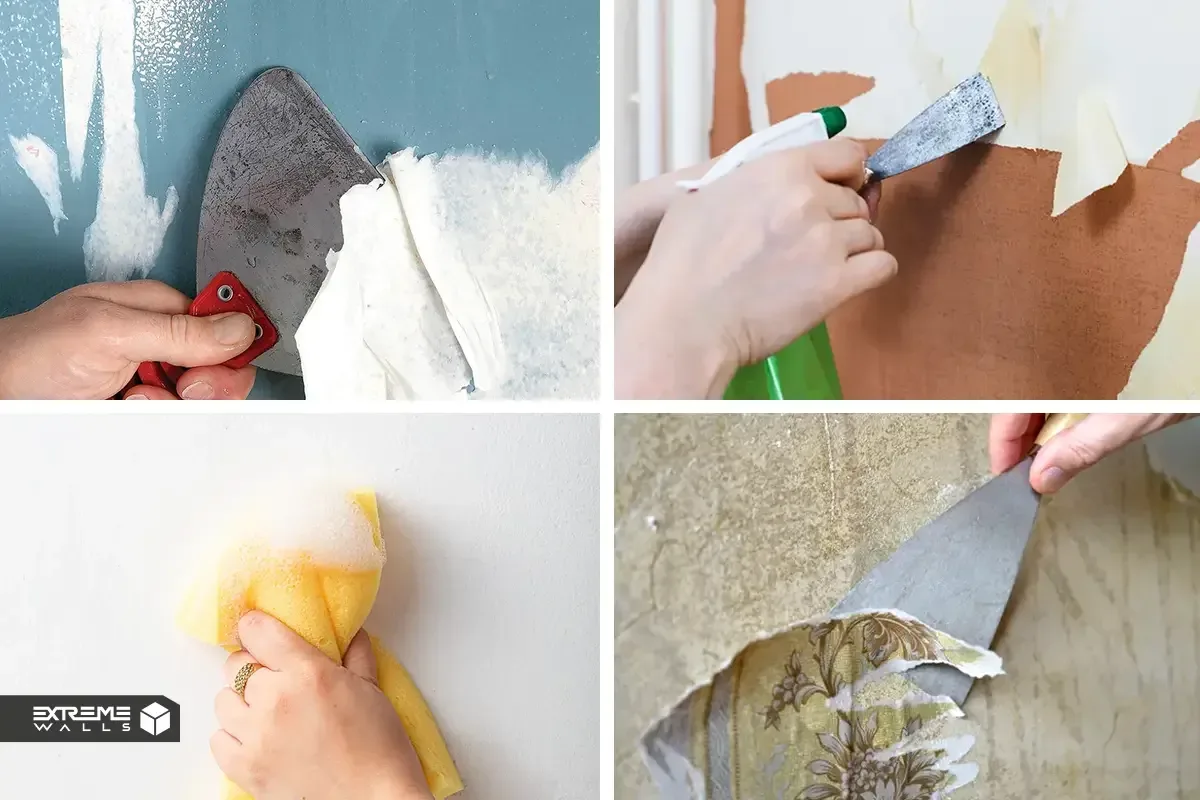
How to Remove Wallpaper Adhesive Left on the Wall
If any glue remains on the wall after removing the wallpaper, you can clean it using common solvents or household items such as dish soap foam or vinegar.
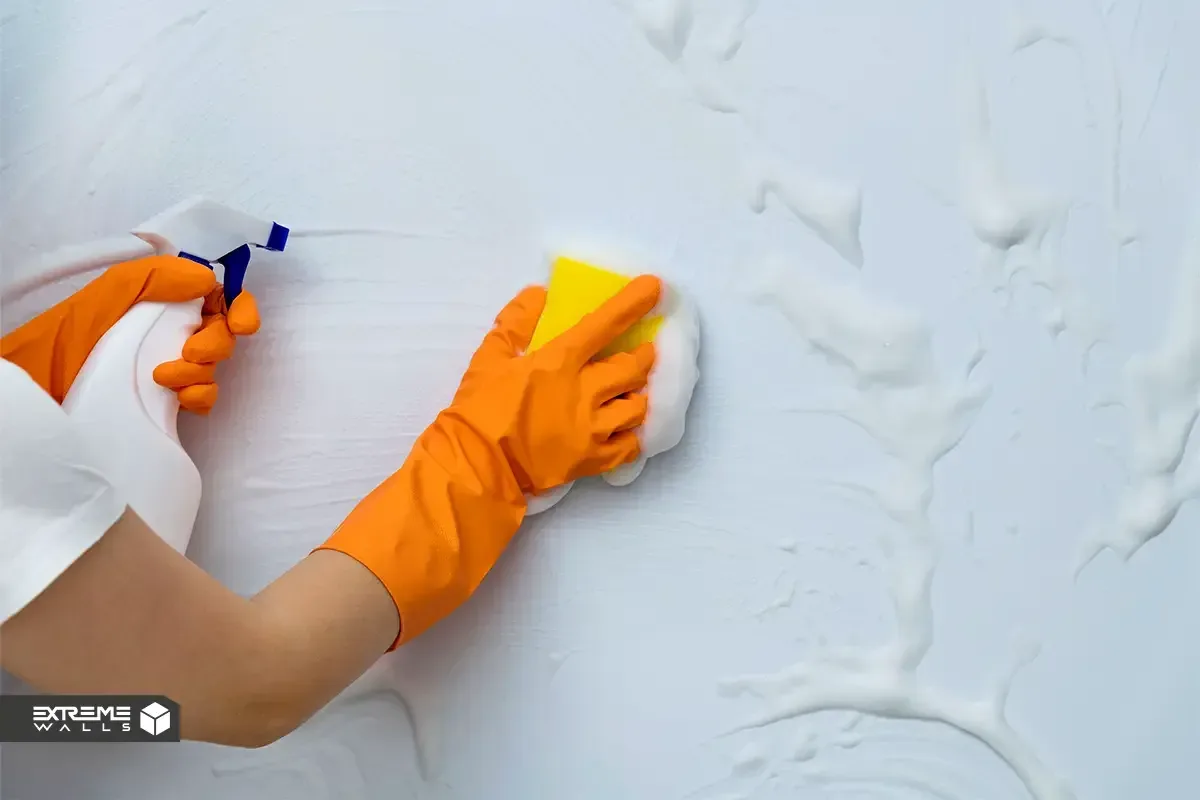
How to Remove Wallpaper Using Simple and Practical Methods
Removing Wallpaper from a Plastered Wall
1. Preparation before removal:
First, turn off the electricity in the work area. Cover the floor and furniture with fabric or plastic sheets to protect them from dirt and water.
2. Steam penetration:
Use a steamer or a warm damp cloth to let the steam penetrate the glue under the wallpaper. This will help soften and loosen the adhesive.
3. Removing the wallpaper:
Gently peel off the wallpaper from the edges using a scraper or suitable tool. Be patient and avoid rushing to prevent damaging the plaster wall.
4. Final cleaning:
After completely removing the wallpaper, clean off any remaining pieces or glue using warm water and a scraper or other appropriate tool.
5. Repair:
If you notice any cracks or damage in the plaster, repair them before repainting or installing new wallpaper.
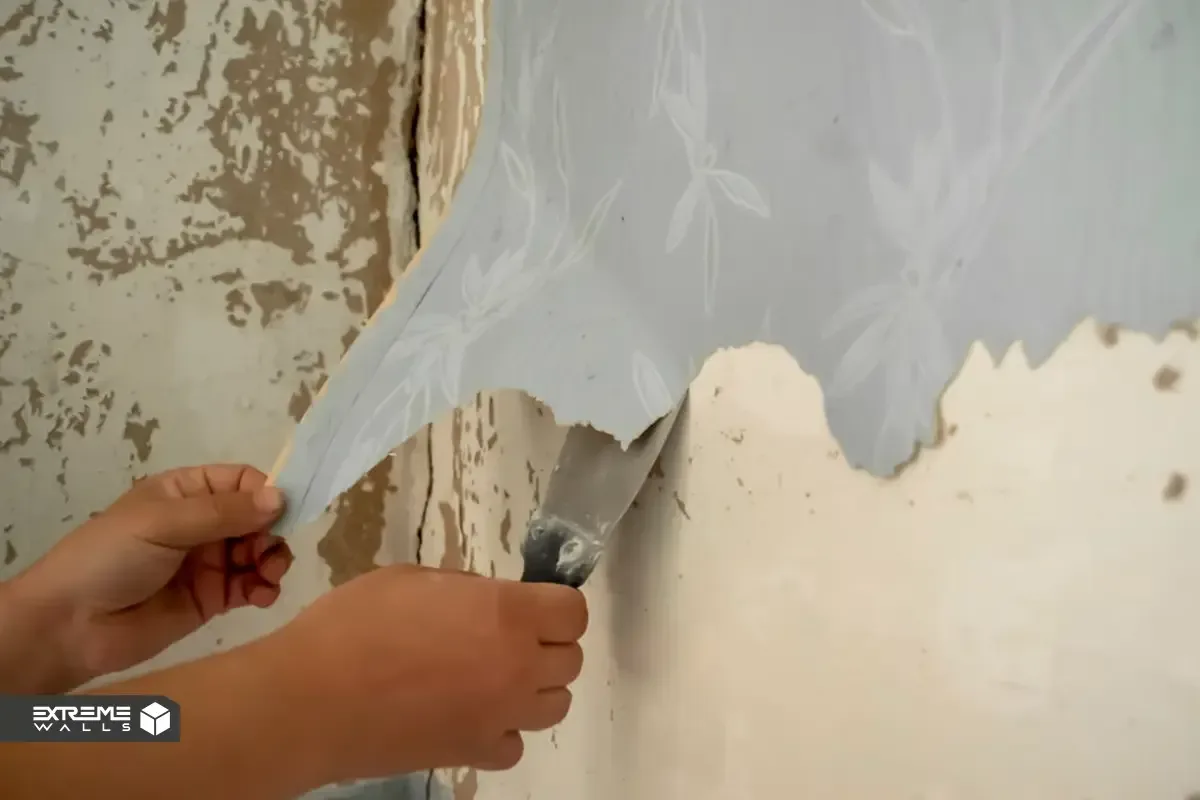
How to Remove Wallpaper from Tiles
Removing wallpaper from tiles is very similar to removing it from plaster walls, with the main difference being that tiles are a harder surface and require extra care. Excessive use of a scraper or sharp tools can damage the tiles, so it’s best to use methods that minimize any harm.
To remove wallpaper from tiles, start by lifting a corner of the wallpaper with a scraper or utility knife. Then, spray warm water or a mixture of water with a little vinegar or dish soap onto the surface and let it sit for a few minutes to soften the adhesive underneath. Gently peel the wallpaper off the tiles, repeating the process if necessary. Once the wallpaper is completely removed, clean the tile surface with a sponge and warm water solution, then wipe it dry with a cloth to ensure no adhesive residue remains.
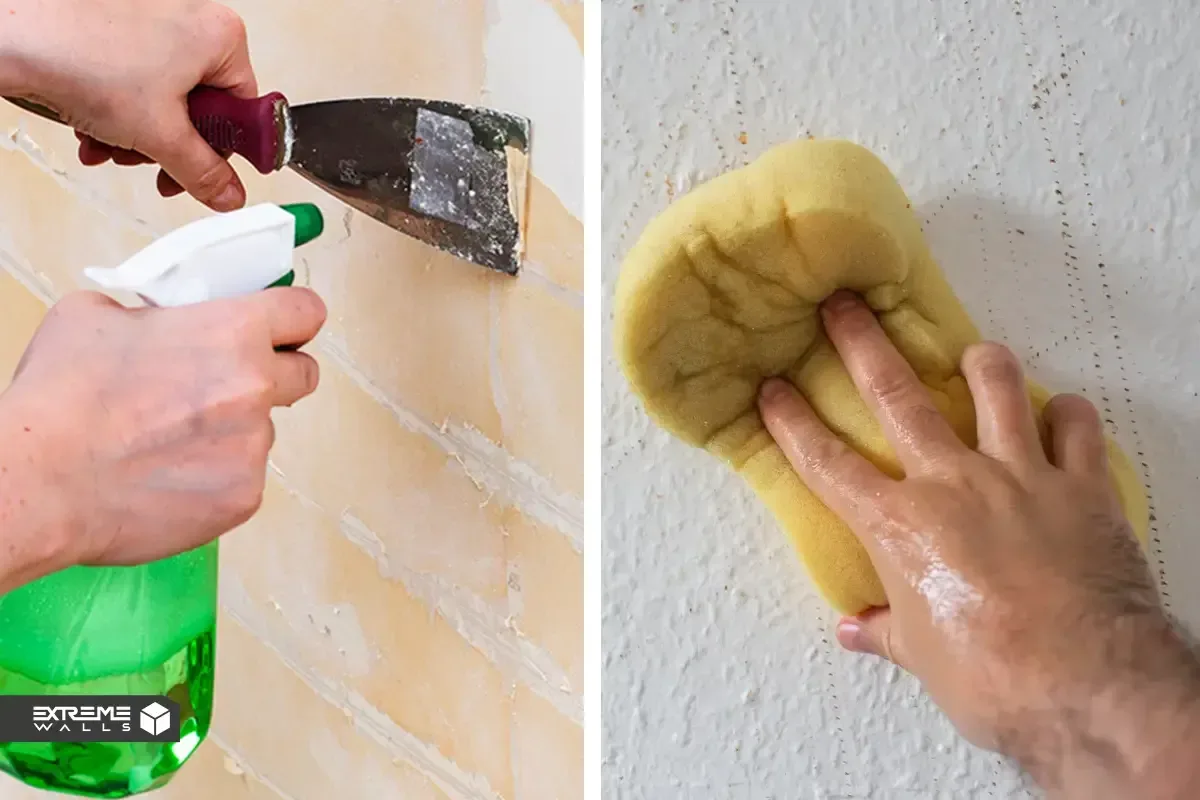
How to Remove Wallpaper Using a Chemical Solution
To remove wallpaper, you can purchase a specialized wallpaper removal solution from hardware stores or paint shops. These products usually come in powder form and need to be mixed with the appropriate amount of warm water and vinegar. Once prepared, spray the solution onto the old wallpaper. After a while, the adhesive will dissolve and lose its strength, allowing you to lift the wallpaper from the edges using a scraper or knife.
In some cases, you may need to apply the diluted solution onto the wallpaper using a brush. Be careful not to apply it to all the wallpaper rolls on the wall at once, as the solution may dry before you can remove the other rolls, requiring you to redo the process.
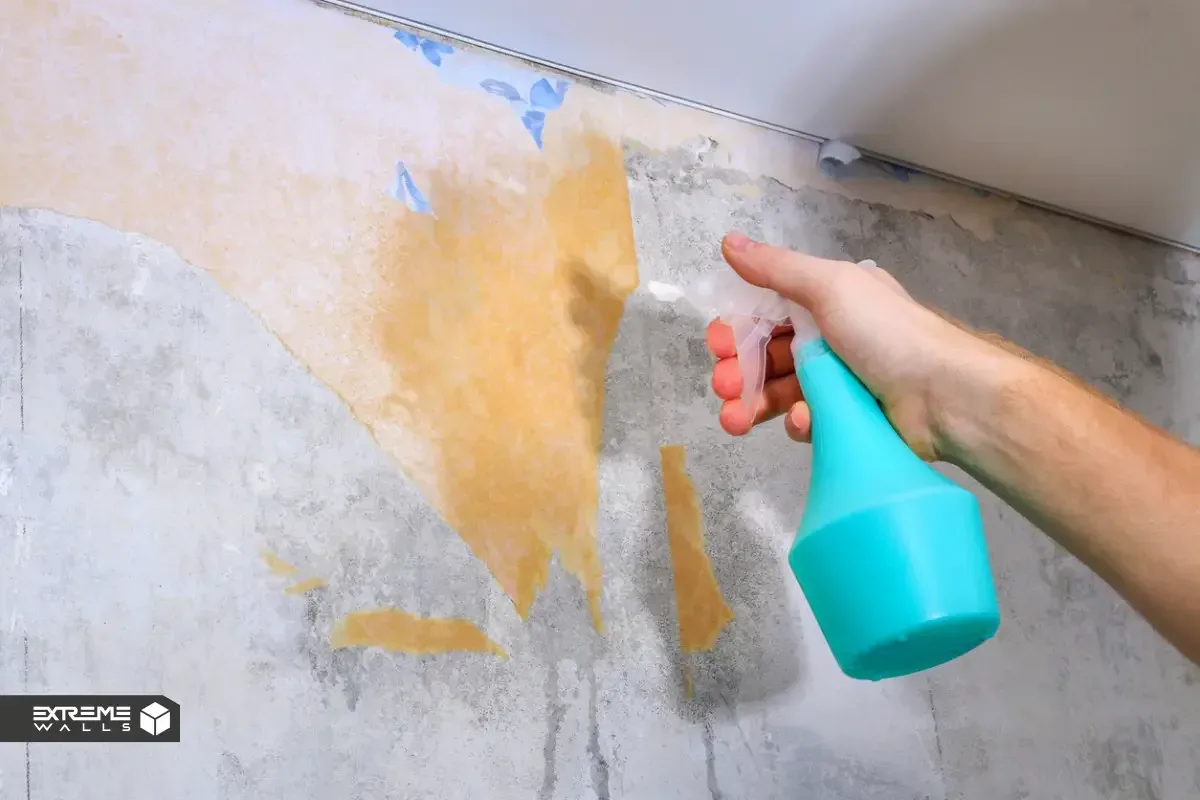
How to Remove Wallpaper from Walls Using a Steamer
One of the easiest methods for removing wallpaper is using a steamer or an electric steam device. These devices generate steam when water is added to their tank. To remove wallpaper, run the steamer over the wallpaper surface; the high heat and fine water particles quickly dissolve the wallpaper adhesive. After steaming, simply lift the wallpaper upwards from the wall, and it will come off easily.
When using a steamer, be careful not to damage the wall’s dry surface and avoid burning your hands.
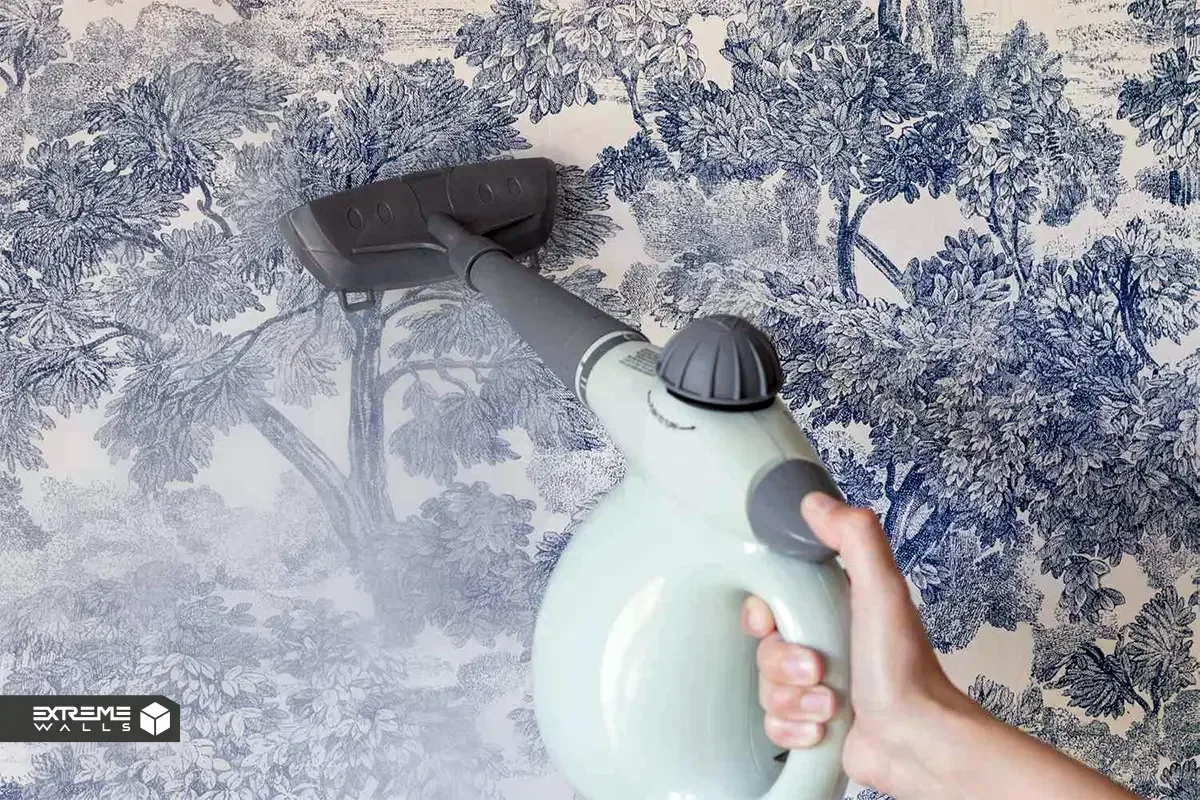
Important Tip When Using a Steamer to Remove Wallpaper
If, after using a steamer, the steam does not penetrate the wallpaper adhesive or no change is observed, create small holes in the wallpaper to allow the steam to reach the glue underneath. For better results, you can hold the steamer on the wall surface for a few extra seconds.
If any pieces of wallpaper remain on the wall after steaming, remove them completely using warm water.
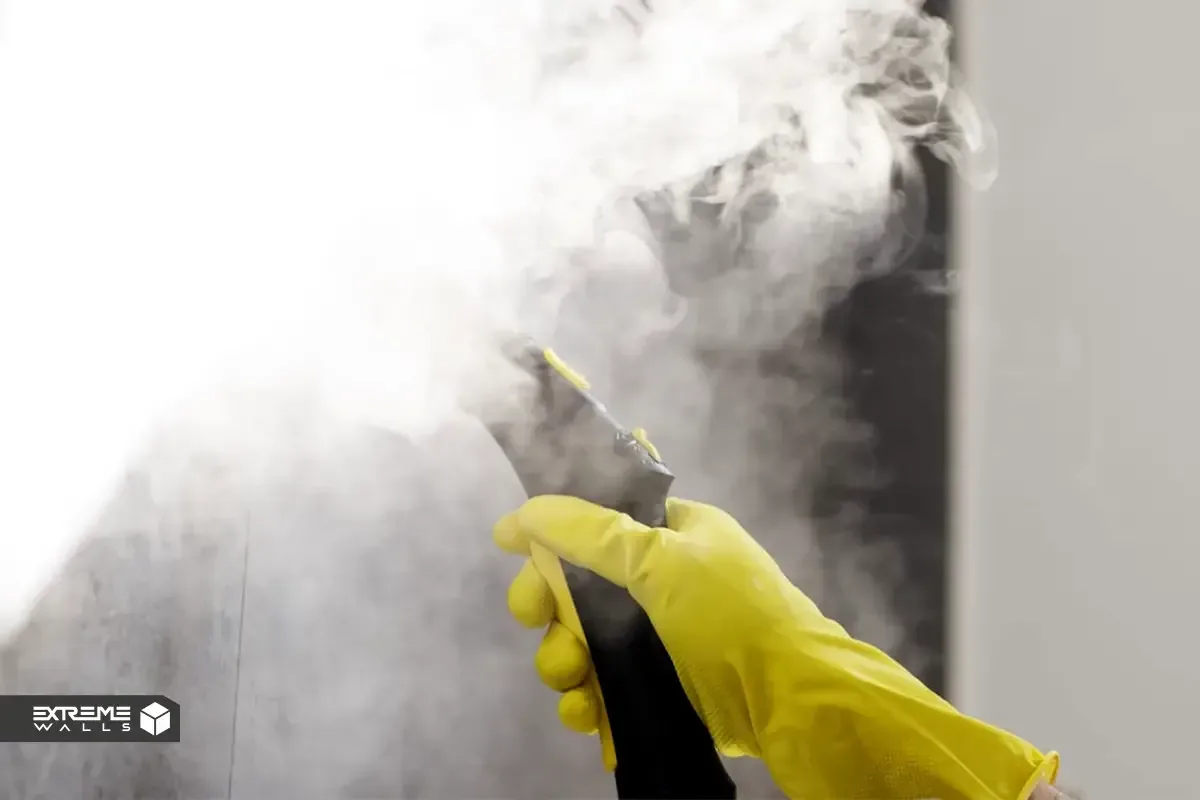
Removing Old Wallpaper with Water and Vinegar
You can effectively remove old wallpaper from your walls using a simple water and vinegar solution, without the need for harmful chemicals.
1. Prepare the solution:
Mix equal parts of warm water and vinegar in a spray bottle.
2. Spray the solution:
Spray the mixture directly onto the wallpaper until it is completely wet.
3. Let the solution penetrate:
Wait 10 to 15 minutes for the solution to seep into the adhesive under the wallpaper, softening and loosening it.
4. Remove the wallpaper:
Use a scraper or a suitable tool to lift and peel the wallpaper from the edges.
5. Repeat the steps:
If necessary, repeat steps 2 to 4 for other sections of the wallpaper.
6. Final cleaning:
After completely removing the wallpaper, clean off any remaining pieces or adhesive with warm water, a scraper, or a sponge.
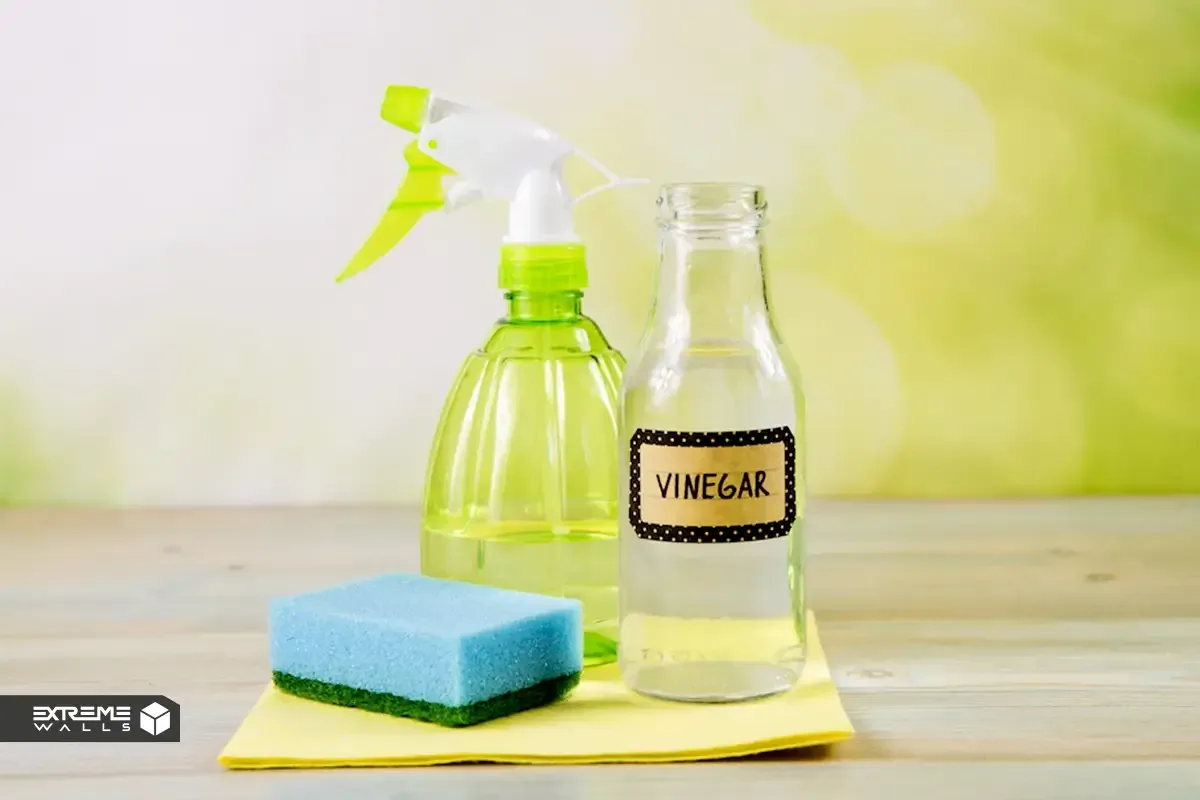
Removing Stubborn Wallpaper from Walls
Some wallpapers, due to their high durability and water resistance—one of their main advantages—may not come off easily. If your wallpaper does not peel off using the previously mentioned methods, you can carefully create scratches on the surface with a scraper or another sharp tool, taking care not to damage the wall itself.
Next, dip a sponge or a paint roller into a solution of wallpaper removal chemical and warm water. Apply it to a small section of the wallpaper (about 50 × 50 cm) and allow the moisture to penetrate the scratches and gaps. The warm water and chemical mixture will weaken and dissolve the wallpaper adhesive, making it easy to lift the wallpaper off the wall.
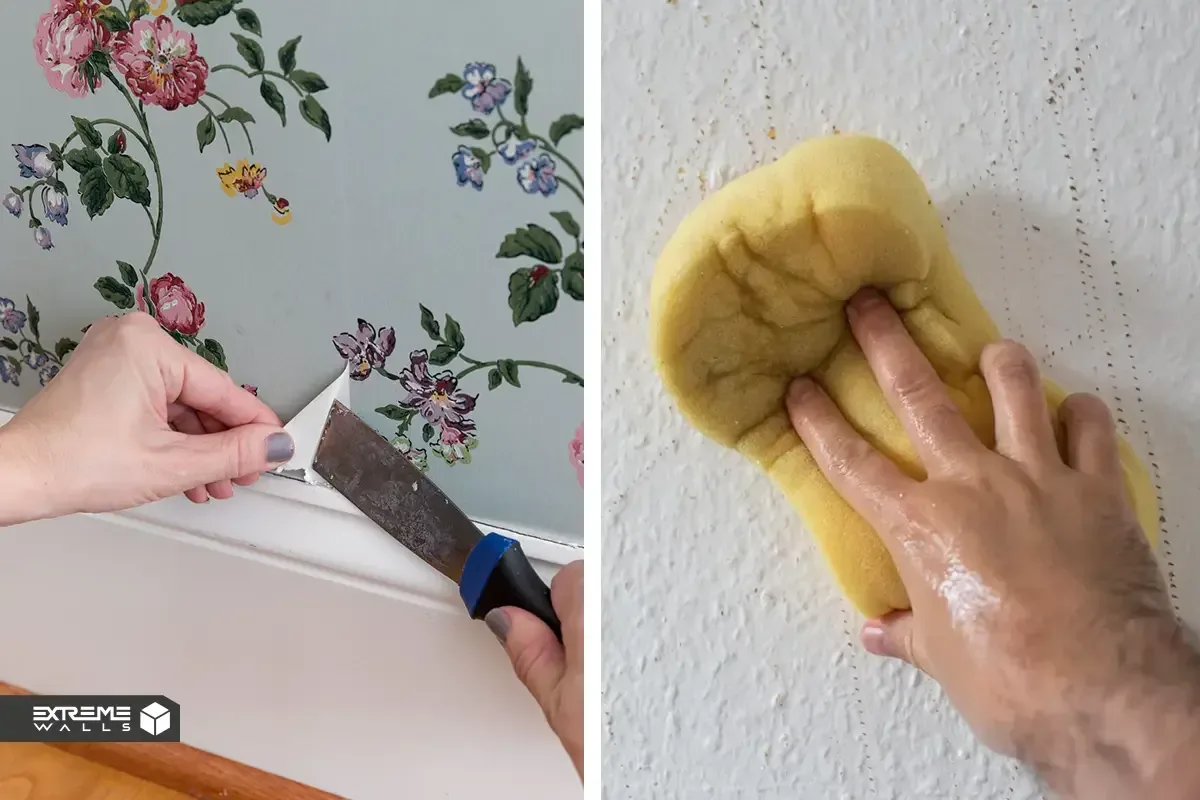
Frequently Asked Questions
1. What are the steps to remove wallpaper from a wall?
- First, clear the walls completely of furniture and decorative items.
- Cover furniture and decor with large plastic sheets, drop cloths, or wet towels to prevent dust from settling on them.
- Using a spray bottle, apply your chosen wallpaper removal solution (water and vinegar or a chemical solution) onto the wall surface.
- Lift the wallpaper from a corner or a gap at the bottom of the wall using a scraper, and gently pull it upward on both sides.
- If the wallpaper is difficult to remove, use a utility knife or a sharp tool to help separate it.
2. How do you remove washable vinyl wallpaper from the wall?
For vinyl-coated wallpapers, first use a scraper to lift the top layer from the wall. Then, use water to remove any remaining pieces of wallpaper from the surface.
